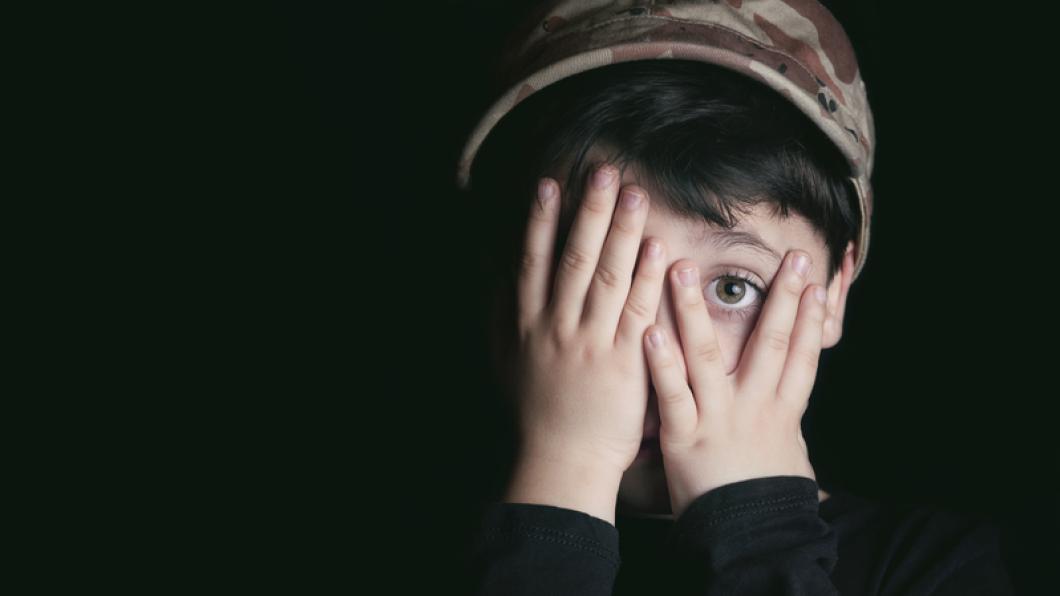
Lessons in bravery for kids with autism
By Louise Kinross
Most kids have fears—whether it's going down into the basement alone or meeting a spider. Children with autism are no different. In fact, "we know compared to the general population that there are more kids who have autism who also experience anxiety," says Abbie Solish, a psychologist at Holland Bloorview.
Logan Hickman was one of them. The 10-year-old had seen a few therapists to help him manage his fears of the dark and bugs, but with little success. During the pandemic he tried an online Facing Your Fears program run by Holland Bloorview.
Facing Your Fears was developed in Colorado and uses principles from cognitive behavioural therapy. Our hospital has offered the program in-person, funded by donors, since 2012. When COVID-19 hit, a grant from the Ontario Ministry of Health made it possible to adapt the intervention and deliver it to almost 100 Ontario children over Zoom.
"Facing Your Fears gave Logan usable skills to work on his fears," says his dad Jeff. "It provided language and concepts that were understandable for his age." Jeff found it valuable to learn alongside his son. "It helped me to be his coach, rather than an observer on the sidelines."
Abbie, who facilitates Facing Your Fears, says it fills a gap for kids with autism.
"There's a history of kids with autism being excluded from other mental health programs," Abbie says. "Facilitators who understand autism can better understand the inherent social challenges that many children with autism experience and how repetitive behaviours, intense interests, sensory processing differences and difficulties with transitions may impact on behaviour—including how the children experience, interpret and manage anxiety."
For three months, youth aged eight to 13 came together online each week in groups of five. For the first hour they participated with their parents, and for the remaining 30 to 40 minutes, parents met with facilitators to learn on their own.
"In the first part of the program, we talk about emotions, what worry is, and where you might experience it in your body," Abbie says. "Then we learn strategies to calm your body when you notice it's feeling worried. That could be by taking deep breaths, or challenging their thinking, or rating where their anxiety is before, during and after a situation, so they can see that while anxiety may go up, it eventually comes down."
Each participant chose a specific fear they wanted to work on and developed steps so that they could practise during the week. "For example, if the child was afraid of dogs, they would think about different ways to face dogs. They could look at pictures of dogs, watch videos of dogs, look at a dog in the park from 50 metres away, stay on the same side of the street when a dog walks by, and eventually walk up to pet a dog."
Children brought diverse fears that are common in children as a whole," Abbie says. "We see a lot of kids who were worried about the dark, about sleeping alone, about spiders and bees, and about talking to new people," Abbie says. "We don't dictate what fears kids will work on, it's driven by the child and parent."
It's interesting to note that fears about COVID weren't prevalent.
"At the beginning some kids are unsure about whether they want to be there and how it will help, but by the end they feel proud of themselves for sticking with it and accomplishing something," Abbie says. "We see an increase in brave behaviours, in kids doing things they weren't doing before. We celebrate the small steps, because we want everyone to leave feeling successful. We see increased confidence in parents. They feel like they have a plan, a shared vocabulary to use with their kids, and strategies they can implement on their own. We're not trying to make anxiety go away, we're trying to make it more manageable, so it doesn't interfere with what kids want to do or need to do, like going to school or going to sleep at night."
In surveys before and after the 12 weeks, children and parents reported a drop in the child's symptoms and the number of youth who met criteria for an anxiety disorder fell from 76 per cent at the outset to 57 per cent at completion.
The results were similar to those seen in our in-person Facing Your Fears program.
The program is targeted to children who are verbal and can participate in a group. "Lots of kids who are non-verbal present with anxiety around changes and in sensory settings, but they can't tell us as easily," Abbie says.
The recent Zoom program involved a team of five psychologists at Holland Bloorview. During the program, professionals and students in psychology, social work and medicine were trained to deliver it in other parts of Ontario.
Holland Bloorview hopes to secure new funding to continue the program this year.
Like this story? Sign up for our monthly BLOOM e-letter. You'll get family stories and expert advice on raising children with disabilities; interviews with activists, clinicians and researchers; and disability news: https://bit.ly/3IIK5Qo.